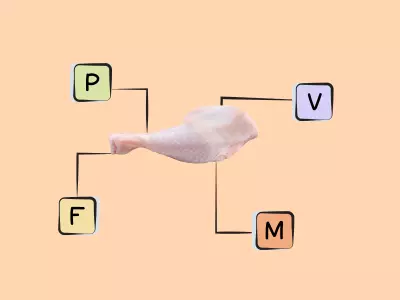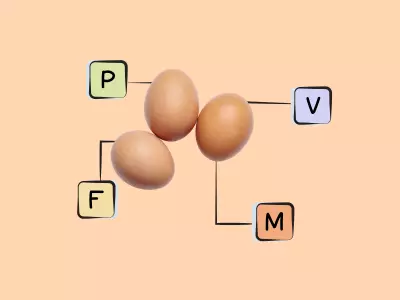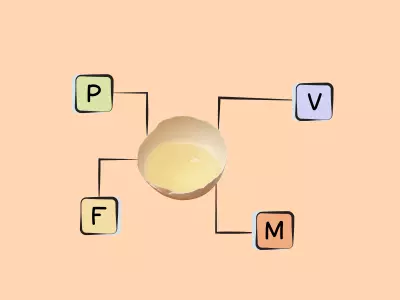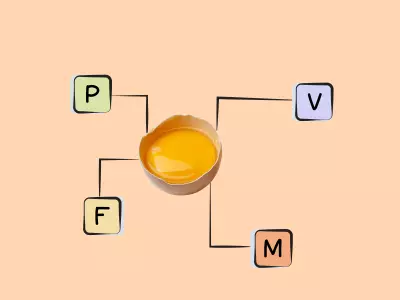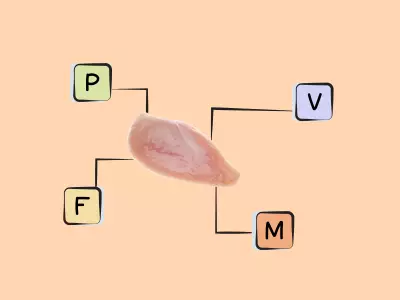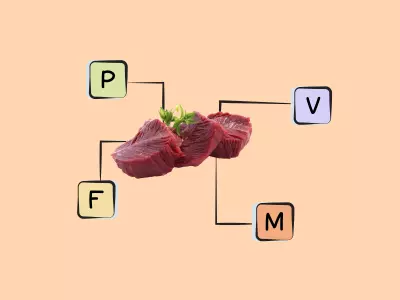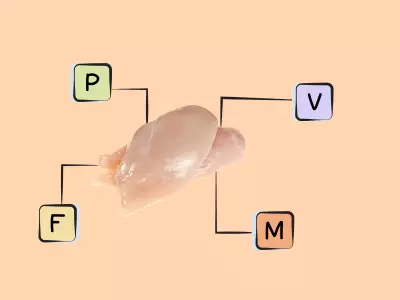Table of Contents[Hide][Show]
Health Benefits of Poultry and Eggs

Although meat often gets a bad rap in epidemiological studies, poultry generally appears safe and possibly slightly protective against some diseases!
In a 2009 prospective study of over half a million people, white meat intake (including all forms of unprocessed poultry and fish) was inversely associated with total mortality, death from cancer, and death from all other causes in both women and men. Likewise, the high protein content of chicken can help maintain lean body mass and increase satiation, supporting a healthy body weight.
Poultry is one of the most concentrated food sources of easily-digested complete protein and is a good source of many other nutrients. For example, chicken is a great source of phosphorus, selenium, zinc, B vitamins, coQ10, taurine, carnosine, and creatine.
Eggs are one of the most hotly debated animal foods in terms of their health effects because, for decades, research has given us conflicting results on the association between eggs and heart disease, stroke, diabetes, cancer, and other health outcomes. You’ve probably noticed the news headlines flip-flopping between “eggs are safe” and “eggs are as bad as cigarettes”! Overall, research shows that eggs have a fairly neutral effect on our health. A recent overview of 29 different systematic reviews showed that eating eggs causes:
- no effect on risk of colorectal adenomas, bladder cancer, prostate cancer, non-Hodgkin’s lymphoma and brain cancer.
- a slightly increased risk of heart failure, GI neoplasms, and ovarian cancer,
- a decreased risk of hypertension and stroke
And, there’s so much conflicting data on diabetes, breast cancer, cardiovascular diseases and upper aero-digestive tract cancers, that we can’t yet draw any conclusions.
Overall, eggs are nutrient-dense sources of highly-digestible complete protein and the risk of harm purported in the media is not supported by the scientific literature.
Examples of Poultry and Eggs
- chicken
- dove
- duck
- eggs (chicken, duck, goose, quail, and so on)
- emu
- goose
- grouse
- guinea hen
- ostrich
- partridge
- pheasant
- pigeon
- quail
- turkey
Nutrivore Is a Game-Changer—These 5 Free Guides Show You Why
Sign up for the free weekly Nutrivore Newsletter and get 5 high-value downloads—delivered straight to your inbox—that make healthy eating simple and sustainable.

Nutrients in Poultry and Eggs

Quality Meat and Seafood
- 100% grass fed and finished beef, pasture-raised pork, pasture-raised chicken and wild-caught seafood
- Raised on regenerative family farms in the USA
- Fast delivery from our farms to your door
- Save 20% off for life, plus $15 off your first box, no coupon required
Help me to keep building Nutrivore.com

I’m working on writing more awesome articles on this topic to be featured right here on this webpage. If you’re enjoying the content my team and I have created thus far and would like to see more, you can support our efforts to keep building out this site by joining the Nutrivore community on Patreon!
Plus every month, you’ll gain exclusive access to a *NEW* Q&A and behind-the-scenes podcast episode, a new e-book in a series, nutrient fun factsheet, and more! Sign up now and also get 5 free Nutrivore guides as a welcome gift! Win-win-win!
Citations
Expand to see all scientific references for this article.
Alexander DD, et al. “Meta-analysis of Egg Consumption and Risk of Coronary Heart Disease and Stroke.” J Am Coll Nutr. Nov-Dec 2016;35(8):704-716. doi: 10.1080/07315724.2016.1152928. Epub 2016 Oct 6.
Blesso CN, et al. “Whole egg consumption improves lipoprotein profiles and insulin sensitivity to a greater extent than yolk-free egg substitute in individuals with metabolic syndrome.” Metabolism. 2013 Mar;62(3):400-10. doi: 10.1016/j.metabol.2012.08.014. Epub 2012 Sep 27.
Bovet P, et al. “Decrease in blood triglycerides associated with the consumption of eggs of hens fed with food supplemented with fish oil.” Nutr Metab Cardiovasc Dis. 2007 May;17(4):280-7. doi: 10.1016/j.numecd.2005.12.010. Epub 2006 Jun 30.
DiBella M, et al. “Choline Intake as Supplement or as a Component of Eggs Increases Plasma Choline and Reduces Interleukin-6 without Modifying Plasma Cholesterol in Participants with Metabolic Syndrome.” Nutrients. 2020 Oct 13;12(10):3120. doi: 10.3390/nu12103120.
Drouin-Chartier J-P, et al. “Egg consumption and risk of cardiovascular disease: three large prospective US cohort studies, systematic review, and updated meta-analysis.” BMJ 2020;368:m513.
Fuller NR, et al. “Effect of a high-egg diet on cardiometabolic risk factors in people with type 2 diabetes: the Diabetes and Egg (DIABEGG) Study-randomized weight-loss and follow-up phase.” Am J Clin Nutr. 2018 Jun 1;107(6):921-931. doi: 10.1093/ajcn/nqy048.
Fuller NR, et al. “The effect of a high-egg diet on cardiovascular risk factors in people with type 2 diabetes: the Diabetes and Egg (DIABEGG) study-a 3-mo randomized controlled trial.” Am J Clin Nutr. 2015 Apr;101(4):705-13. doi: 10.3945/ajcn.114.096925. Epub 2015 Feb 11.
Gangadoo, S., I. Dinev, J. Chapman, et al. 2018. “Selenium nanoparticles in poultry feed modify gut microbiota and increase abundance of Faecalibacterium prausnitzii.” Applied Microbiology and Biotechnology. 102:1455-1466. doi:10.1007/s00253-017-8688-4.
Ijaz, M.U., M.I. Ahmed, X. Zou, et al. 2018. “Beef, Casein, and Soy Proteins Differentially Affect Lipid Metabolism, Triglycerides Accumulation and Gut Microbiota of High-Fat Diet-Fed C57BL/6J Mice.” Frontiers of Microbiology. 9:2200. doi:10.3389/fmicb.2018.02200.
Jang J, et al. “Longitudinal association between egg consumption and the risk of cardiovascular disease: interaction with type 2 diabetes mellitus.” Nutr Diabetes. 2018 Apr 25;8(1):20. doi: 10.1038/s41387-018-0033-1.
Katz D, et al. “Effects of egg ingestion on endothelial function in adults with coronary artery disease: a randomized, controlled, crossover trial.” Am Heart J. 2015 Jan;169(1):162-9. doi: 10.1016/j.ahj.2014.10.001. Epub 2014 Oct 7.
Katz DL, et al. “Egg consumption and endothelial function: a randomized controlled crossover trial.” Int J Cardiol. 2005 Mar 10;99(1):65-70. doi: 10.1016/j.ijcard.2003.11.028.
Knopp RH, et al. “A double-blind, randomized, controlled trial of the effects of two eggs per day in moderately hypercholesterolemic and combined hyperlipidemic subjects taught the NCEP step I diet.” J Am Coll Nutr. 1997 Dec;16(6):551-61.
Krittanawong C, et al. “Association Between Egg Consumption and Risk of Cardiovascular Outcomes: A Systematic Review and Meta-Analysis.” Am J Med. 2021 Jan;134(1):76-83.e2. doi: 10.1016/j.amjmed.2020.05.046. Epub 2020 Jul 10.
Kuhn J, et al. “Free-range farming: a natural alternative to produce vitamin D-enriched eggs.” Nutrition. 2014 Apr;30(4):481-4. doi: 10.1016/j.nut.2013.10.002. Epub 2013 Oct 14.
Li M-Y, et al. “Association between Egg Consumption and Cholesterol Concentration: A Systematic Review and Meta-analysis of Randomized Controlled Trials.” Nutrients. 2020 Jul 4;12(7):1995. doi: 10.3390/nu12071995.
Liu C, et al. “Association between daily egg intake and lipid profiles in adults from the Henan rural cohort study.” Nutr Metab Cardiovasc Dis. 2020 Nov 27;30(12):2171-2179. doi: 10.1016/j.numecd.2020.07.004. Epub 2020 Jul 6.
Madsen, L., L.S. Myrmel, E. Fjære, B. Liaset, and K. Kristiansen. 2017. “Links between Dietary Protein Sources, the Gut Microbiota, and Obesity.” Frontiers in Physiology. 8:1047. doi:10.3389/fphys.2017.01047.
Mazidi M, et al. “Egg Consumption and Risk of Total and Cause-Specific Mortality: An Individual-Based Cohort Study and Pooling Prospective Studies on Behalf of the Lipid and Blood Pressure Meta-analysis Collaboration (LBPMC) Group.” J Am Coll Nutr. 2019 Aug;38(6):552-563. doi: 10.1080/07315724.2018.1534620. Epub 2019 Jun 7.
Mutungi G, et al. “Dietary cholesterol from eggs increases plasma HDL cholesterol in overweight men consuming a carbohydrate-restricted diet.” J Nutr. 2008 Feb;138(2):272-6. doi: 10.1093/jn/138.2.272.
Nakamura Y, et al. “Egg consumption, serum total cholesterol concentrations and coronary heart disease incidence: Japan Public Health Center-based prospective study.” Br J Nutr. 2006 Nov;96(5):921-8. doi: 10.1017/bjn20061937.
Ohman M, et al. “Biochemical effects of consumption of eggs containing omega-3 polyunsaturated fatty acids.” Ups J Med Sci. 2008;113(3):315-23. doi: 10.3109/2000-1967-235.
Pearce KL, et al. “Egg consumption as part of an energy-restricted high-protein diet improves blood lipid and blood glucose profiles in individuals with type 2 diabetes.” Br J Nutr. 2011 Feb;105(4):584-92. doi: 10.1017/S0007114510003983. Epub 2010 Dec 7.
Ratliff JC, et al. “Eggs modulate the inflammatory response to carbohydrate restricted diets in overweight men.” Nutr Metab (Lond). 2008 Feb 20;5:6. doi: 10.1186/1743-7075-5-6.
Richard C, et al. “Impact of Egg Consumption on Cardiovascular Risk Factors in Individuals with Type 2 Diabetes and at Risk for Developing Diabetes: A Systematic Review of Randomized Nutritional Intervention Studies.” Can J Diabetes. 2017 Aug;41(4):453-463. doi: 10.1016/j.jcjd.2016.12.002. Epub 2017 Mar 27.
Romano G, et al. “Effects of dietary cholesterol on plasma lipoproteins and their subclasses in IDDM patients.” Diabetologia. 1998 Feb;41(2):193-200. doi: 10.1007/s001250050889.
Rouhani MH, et al. “Effects of Egg Consumption on Blood Lipids: A Systematic Review and Meta-Analysis of Randomized Clinical Trials.” J Am Coll Nutr. 2018 Feb;37(2):99-110. doi: 10.1080/07315724.2017.1366878. Epub 2017 Nov 7.
Samman S, et al. “Fatty acid composition of certified organic, conventional and omega-3 eggs.” Food Chemistry 15 Oct 2009;116(4):911-914.
Shin, JY et al. “Egg consumption in relation to risk of cardiovascular disease and diabetes: a systematic review and meta-analysis.” Am J Clin Nutr. 2013 Jul;98(1):146-59. doi: 10.3945/ajcn.112.051318. Epub 2013 May 15.
Sinha, R., A.J. Cross, B.I. Graubard, M.F. Leitzmann, and A. Schatzkin. 2009. “Meat intake and mortality: a prospective study of over half a million people.” Archives of Internal Medicine. 169(6):562-571. doi:10.1001/archinternmed.2009.6.
Stupin A, et al. “Omega-3 polyunsaturated fatty acids-enriched hen eggs consumption enhances microvascular reactivity in young healthy individuals.” Appl Physiol Nutr Metab. 2018 Oct;43(10):988-995. doi: 10.1139/apnm-2017-0735. Epub 2018 Apr 10.
Tran NL, et al. “Egg consumption and cardiovascular disease among diabetic individuals: a systematic review of the literature.” Diabetes Metab Syndr Obes. 2014 Mar 24;7:121-37. doi: 10.2147/DMSO.S58668. eCollection 2014.
Virtanen JK, et al. “Associations of egg and cholesterol intakes with carotid intima-media thickness and risk of incident coronary artery disease according to apolipoprotein E phenotype in men: the Kuopio Ischaemic Heart Disease Risk Factor Study.” Am J Clin Nutr. 2016 Mar;103(3):895-901. doi: 10.3945/ajcn.115.122317. Epub 2016 Feb 10.
Wang MX, et al. “Impact of whole egg intake on blood pressure, lipids and lipoproteins in middle-aged and older population: A systematic review and meta-analysis of randomized controlled trials.” Nutr Metab Cardiovasc Dis. 2019 Jul;29(7):653-664. doi: 10.1016/j.numecd.2019.04.004. Epub 2019 Apr 20.
Xia P-F, et al. “Dietary Intakes of Eggs and Cholesterol in Relation to All-Cause and Heart Disease Mortality: A Prospective Cohort Study.” J Am Heart Assoc. 2020 May 18;9(10):e015743. doi: 10.1161/JAHA.119.015743. Epub 2020 May 13.
Zhang X, et al. “Egg consumption and health outcomes: a global evidence mapping based on an overview of systematic reviews.” Ann Transl Med. 2020 Nov;8(21):1343. doi: 10.21037/atm-20-4243.
Zhu, Y., X. Lin, F. Zhao, et al. 2015. “Meat, dairy and plant proteins alter bacterial composition of rat gut bacteria.” Scientific Report. 5(15220). https://doi.org/10.1038/srep15220.
Zhuang P, et al. “Egg and egg-sourced cholesterol consumption in relation to mortality: Findings from population-based nationwide cohort.” Clin Nutr. 2020 Nov;39(11):3520-3527. doi: 10.1016/j.clnu.2020.03.019. Epub 2020 Mar 28.



